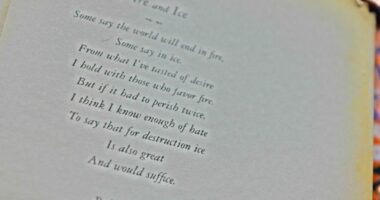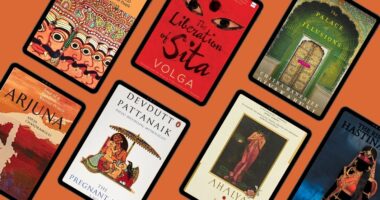What makes for a great reading experience? Is it just the number of pages one reads in a day? Or is it something deeper, more intentional, more fulfilling? We believe it is the latter. So, if you are also wondering, how to read books more deeply and intricately? Here’s a list of ways you can get more out of a book you’re reading.
How to Read Books More Deeply And Intricately?
Annotate your books
The best way to understand a book deeply is to take notes. Readers tend to forget what they were thinking of while reading a particular part of the book after they’re done with it. But annotating makes these thoughts permanent, which enables one to make cross connections among topics more easily.
Compare and contrast with other books
Because books exist not in a vacuum but in a league with their contemporaries, knowing and juxtaposing books with each other helps comprehension. In this case, knowing how a book produces a different effect from another one close to it in time, culture or genre is crucial. Thus it is important to compare and contrast books across space and time.

Note the stylistics and how that affects the reading experience
Very often, while analyzing themes and sociohistorical contexts, the stylistics aspects of a book get left behind. However they are important contributors to the overall impact of a book. Thus analyzing figures of speech not just for what they are but for what kind of effect they produce enables a clearer understanding of the book.
Learn about the author and period
Books definitely don’t exist in a vacuum. Authors are products of their time just as much as they are producers of their time. In an interactive way, the author, his or her environment and the work of art co-create each other. Understanding the personal life of the author as well as the social, economic, political, historical and cultural time cements comprehension.

Actively look for symbolism
Symbolism within a book is usually hidden. It is not visible to a careless eye but when you look deeper and more intently, it is present. Whether the symbolism is finite or extended, it has important implications for the understanding of the book as a whole. This not only improves the reading experiences but also heightens knowledge about the craft of writing.
Read reviews, articles and critical studies
Because every person’s interpretation of the same work of art is widely different, exposure to other perspectives on the same work of art can be a particularly fulfilling intellectual exercise. Reading reviews on reputed websites (like NY Times, LARB, LRB, LitHub) as well as more research oriented critical studies is useful.
Reflect on what you got out of the book
Even as important as it is to read what others have to say about a book to understand it holistically, it is equally important to reflect on it yourself. Because reading and understanding is such a personal, intimate experience, thinking about the book intently is an important part of its appeal. Thus reflecting on the nature of the book is important.

Read slowly and intentionally
Reading fast in order to cover as much ground as possible within a limited span might seem like a great idea but it really is not. It will limit your quality of reading experience, because you will read a lot but very superficially. To penetrate the innermost layers of the book, it is crucial to read with concentration, at a slow, non-race-like pace.
Don’t try to fit the work into existing pre-notions
Very often we have pre-existing notions about what a book says and means. But while reading the book in its actuality, it is important to set aside those notions to let the book speak to you. Trying to fit it into pre-existing paradigms and limiting frameworks may make you feel like you understand a lot, but really you’re smothering the work of art.
Also Read: Origin and History of Poetry




